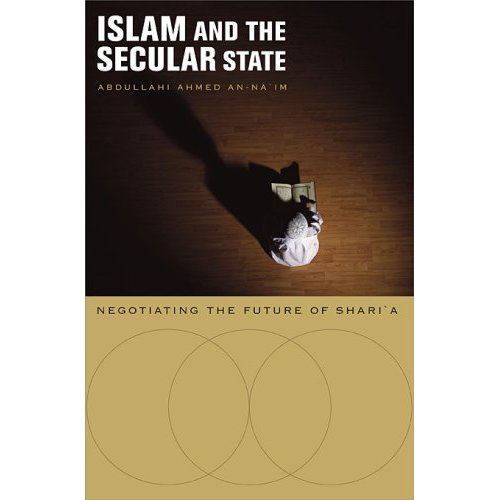One of the first ideas presented in Dr. Abdullahi Ahmed An-Na’im’s lecture on Muslim American identity was that “everybody is a minority in some way and everyone is a majority in some way.” For this reason, An-Na’im argued, Muslim Americans should not see themselves or accept being seen as a minority; instead, they should take a proactive role in their own citizenship and thus their own identity.
An-Na’im, a professor of law at Emory University, was born in Sudan. “It is true that my work is very personal,” he said. “I do it for myself, for my own sanity.”

His work focuses on the relationship between politics and Islam, with the aim to promote “a liberal, modernist understanding of Islam and the cultural legitimacy and practical efficacy of international human rights standards.” Dr. An-Na’im’s talk at Boston University on Thursday was co-sponsored by the Institute on Culture, Religion, and World Affairs, and the Institute for Philosophy and Religion.
During the lecture, An-Na’im discussed his personal view on identity, explaining that he saw each individual’s identity as multi-faceted, with different levels of influence in any given situation. What this means for Muslim Americans, then, is that their religious identity is “neither decisive of citizenship nor monolithic.”
“There are no two people who are Muslims in the same way,” An-Na’im said. “There is no possibility of collective belief or collective experience. I have no way of knowing who your god is.”
For this reason, An-Na’im argued that shariah, Islamic law, is “conceptually impossible.” Because religion is a personal experience, there would be no way for the state to institute a religious law, because simply by the act of instating it, the law would stop being religious, An-Na’im argued. Discussion of Islam, then, is not actually what Islam is, but what each individual believes Islam to be.
An-Na’im also pointed out that shariah is a post-colonial issue, which is problematic in that it views Muslims in terms of colonialism. “Until we stop talking about the post-colonial,” he said, “we are still in the colonial.”
The view of shariah that becomes an issue, An-Na’im argued, is that all Muslims must be in favor of shariah simply because they are Muslim.
An-Na’im ended his lecture by opening up the room to discussion. For more information on Dr. Abdullahi Ahmed An-Na’im and his works, visit his website here.

